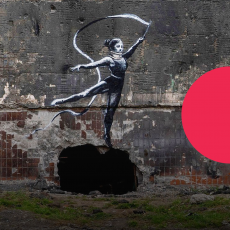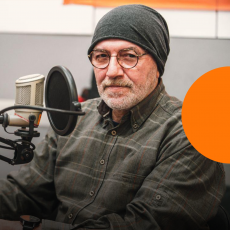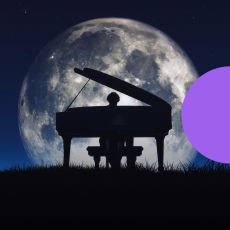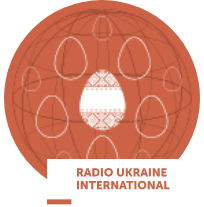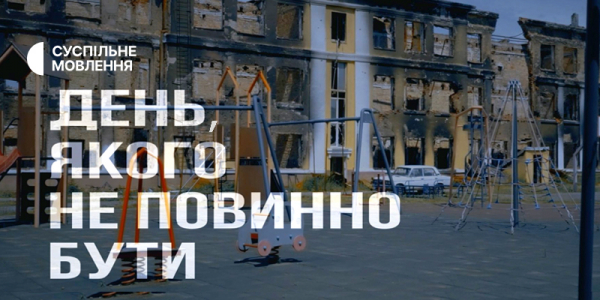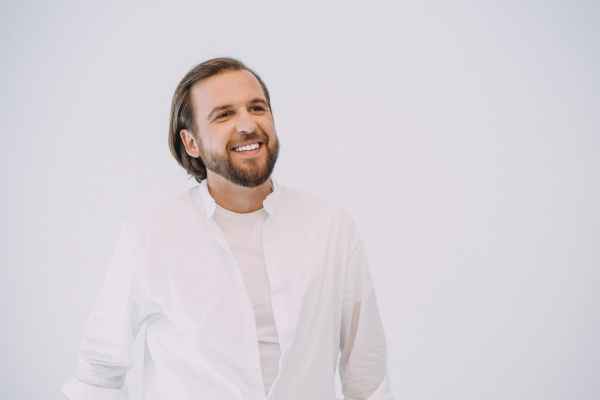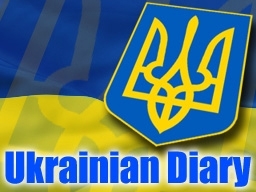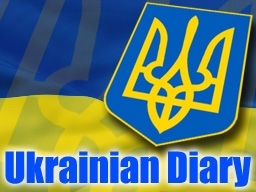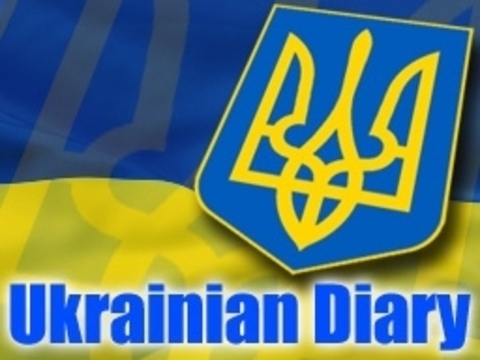Donbas war zone: weekly roundup
Over the past week the situation in the conflict zone in the Donbas region has seen a major escalation in terms of quantity and intensity of enemy fire. After a short-term period of truce observance, the use of weapons of various types, including heavy weapons banned by the Minsk agreements, has resumed. Massive shelling of Ukrainian army positions has been recorded in multiple spots at the engagement line. In Donetsk sector, Pavlopil, Shyrokyne, Avdiivka, Vodiane, Novotroitske, Lebedynske, Talakivka, Hnutove, Butivka are among the current hot spots. In Luhansk sector, Russia-backed militants have been targeting Ukrainian army positions neat Troitske, Luhanske, Katerynivka, Schastia and other spots.
The TCG on conflict settlement has had their meeting on Monday, agreeing on recommitment to the ceasefire, starting from 0 hours Kyiv time on March 30. However, the so-called Easter fire has failed on the very first day of its announcement.
Attacks by the enemy have caused a number of casualties among the Ukrainian servicemen. On Friday the Defense Ministry spokesman col. Dmytro Hutsuliak reported that the Ukrainian army has returned fire in order to preserve the lives of the personnel. Also monitors from the OSCE Special Monitoring Mission to Ukraine reported on 15 howitzers spotted in non-government-controlled areas in violation of the Minsk agreements.
At a briefing on Friday, Alexander Hug commented on the current situation by Skype from Donetsk, calling uncompromisingly for an irreversible ceasefire: “5.05 Dear friends, another recommitment to ceasefire came into effect last night just after midnight. It’s another opportunity for the sides to work toward the full sustainable ceasefire, another opportunity to prioritize civilians over a military logic that has brought everyone to a dead end. People here have just gone through 4 winters of conflict. 4 winters of violence in conditions not seen in Europe for years. The spring has now come and since the latest recommitment, there’s now a chance to step back from the chaos that had splaked Eastern Ukraine for almost 4 years. There is a chance to reverse damage and hurt.”
While Russia has sent yet another humanitarian convoy to the occupied territories in Donbas. Reportedly the 40 trucks have delivered over 400 tonnes of humanitarian aid. Oleh Slobodian, spokesman of Ukrainian State Border Service, commented on Thursday: “Since representatives of the ICRC did not take part in the cargo customs processing, as Russia has violated yet again the national and international norms which regulate the order of acceptance for humanitarian convoys, only visual examination has been made possible by the interagency group, and no inspection has been made. The group reported on their observations, stating that the trucks were half loaded, allegedly carrying food supplies, baby foods and stationery,” said Slobodian. In an interview with Ukrainian Radio, he added that the ICRC was delivering humanitarian aid to the uncontrolled territories 2 to 3 times a week, which according to him was the real humanitarian aid, whereas there was no certaintly about what was actually inside the cargoes sent by Russia.
Ukraine expelled 13 Russian diplomats
Over 20 countries have expelled diplomatic representatives of the Russian Federation in solidarity with the UK, responding to the poisoning of former spy Sergey Skripal and his daughter in Salisbury. The use of a military-grade nerve agent Novichok was recognized the first offensive use of a nerve agent in Europe since World War II, which Russia is now internationally blamed for. On Monday, the Ukrainian president has also announced about the decision to expel Russian diplomats from the country. Mariana Betsa, Spokeswoman for the Foreign Ministry of Ukraine, commented: “In response to the cynicism of the chemical attack in Solsbury, and in solidarity with our British partners, Ukraine decided to expell 13 Russian diplomats, those that were left. As you know, our relations with the RF as a matter of fact are frozen. Which is why it is very important to not only make statements, but proceed to action.” On Tuesday, UK Ambassador Judith Gough has thanked Ukraine for standing with the UK in the face of Russia's unacceptable behavior, as the statement on her Twitter page reads.
While Russia has repeatedly denied their involvement, the number of countries that are unanimous in condemning the methods of chemical attacks is increasing. On March 26, President of European Council Donald Tusk said that 14 EU member states were expelling a number of Russian diplomats in retaliation for the chemical attack in southern England. The US and Canada have also decided to join those measures and kick out a number of Russian diplomats. Namely, 48 officials were expeled from the Russian embassy in Washington and 12 at the Russian mission at the UN, while the Russian consulate in Seattle is to be closed. Canada for their part decided decided to kick out four Russian diplomats.
The detention of another activist and blogger in Crimea
Another Crimean Tatar activist has been illegally detained in the occupied peninsula. Kyivsky District Court of Simferopol ruled to arrest Crimean Tatar Nariman Memediminov until May 16. He was charged with allegedly extremist statements in a YouTube video shot in 2012-13. Nariman was not given an opportunity to contact his lawyer. Lawyer Emil Kurbedinov believes that arrests have become a common tool in a campaign of oppression targeting members of the Turkic-speaking Crimean Tatar minority and others who opposed Moscow's seizure of the Ukrainian peninsula in March 2014. “This is not the first time that the authorities tried to prosecute Nariman Memediminov. In 2015 2016 his house was searched multiple times. He was openly told that he could be arrested for his activity, but despite all the pressure, Nariman continued his work covering what was happening in the occupied Crimea, openly scrutinizing and reporting human rights abuses,” - said Lawyer Emil Kurbedinov.
Russian authorities have created a pervasive climate of fear and repression in the region over the four years of occupation. The occupying power has chosen the tactics of intimidation and terror of the local population. Currently, the activities of the Mejlis of the Crimean Tatar People are banned. The space for free speech, freedom of association, and media in Crimea has shrunk dramatically. Authorities have required Crimean residents either to become Russian citizens or, if they refuse, to be deemed foreigners in Crimea. Four years on, it is evident that residents who chose not to accept Russian citizenship face growing discrimination.
Russian authorities have repeatedly harassed and intimidated Crimean Tatar activists; conducted intrusive and sometimes unwarranted searches at mosques, Islamic schools, and dozens of homes of Crimean Tatars under the pretext of searching for drugs, weapons, and prohibited literature; and initiated administrative and criminal proceedings against dozens of Crimean Tatars on trumped up charges, which included “rioting” and “terrorism.” Crimean Tatars who consciously chose not to obtain Russian citizenship are regularly questioned.
A huge price has been paid by the Crimean Tatar leaders and other Ukrainians who peacefully stood in defence of Ukraine after Russian forces and armed paramilitaries seized control of Crimea. Overall, since the beginning of the annexation of Crimea, 64 Ukrainian political prisoners have ended up in Russian prisons. The list is long, including Ukrainian filmmaker Oleg Sentsov, human rights defender Emir-Usein Kuku and a number of Crimean Tatars active in the Crimea Solidarity movement, which arose to help the ever-increasing number of political prisoners in Crimea and their families.
Patriots of Ukraine have become enemies of Russia and with time the number is only increasing. Ukrainian political prisoners in Crimea have already been sentenced to a total of 184 years in maximum security.
Ukrainian officials on Germany’s participation in Nord Stream 2 gas pipeline project
The management of the Ukrainian Naftogaz company evaluated the decision of Germany to issue permits for the Nord Stream 2 gas pipeline building as "unpleasant" but quite expected. A statement on it has been posted on the company’s Facebook page. “The best defense for Ukraine, which will help us and our allies, is the completion of the gas market reform, the report said. It became known earlier that the German Federal Maritime and Hydrographic Agency issued permit applications to Nord Stream 2 construction and its operating in the exclusive economic zone. Thus, Gazprom has got all the necessary permits for the pipeline being built to Germany. Spokesperson of Ukraine’s Naftogas company Olena Osmolovska commented on the issue: «This decision wasn’t a complete surprise; it was expected a while ago. The matter is, that Germany treats this as a purely economic step, while a number of European and American states, including Ukraine perceive this as a political decision that threatens both national and political security of this country and its European partners. Surely, Ukraine and its allies will resist the construction of Nord Steam 2.»
The project is backed by Germany, which approved its construction on Tuesday, and five northern European firms, who seek access to cheap Russian gas to offset declining Dutch production. Approvals are still needed from Russian, Finnish, Danish and Swedish authorities. Eastern European countries fear the pipeline will increase dependence on Moscow and undercut EU support for Kyiv by depriving it of transit fees. Moscow notoriously used gas prices to pressurise Ukraine during a mounting conflict with its former satellite which saw Russia annex the Crimean peninsula in 2014 — prompting EU sanctions in response. Ukraine earlier appealed to the EU Commission and EU countries-members to refuse from the intentions to construct ‘Nord Stream-2’ that threatens energy security of Ukraine and the EU, claimed Ukraine’s president Petro Poroshenko. For Ukraine, German’s approval of Nord Stream 2 is an issue of policy and international support. Volodymyr Saprykin, Energy Department Director at the Razumkov center, a Ukrainian non-governmental public policy think tank, comments on the issue: “This will hit the Ukrainian economy, this is, actually, a challenge not only for Ukraine, but also for the Baltic states and the US. German companies, in fact, supported the Russian side. It’s evident they want to cooperate with Gazprom, no matter what,» said Volodymyr Saprykin. As it was already mentioned, Ukraine, Poland, and the Baltic states all oppose the project. The US State Department spokeswoman said earlier this month that the US government opposed Nord Stream 2 as the project would undermine Europe’s energy security and stability. Heather Nauert said at a department press briefing that companies engaged in the construction and financing of the pipeline “could expose themselves to sanctions” under US law.
Docudays.UA festival awarded the winners
The 15th International Human Rights Documentary Film Festival Docudays has ended in Kyiv after the intense week-long program of 62 films from 36 countries, as well as numerous public events of various formats. Involving 230 participants within several thematic and professional programs, this year’s festival, titled Equal Equalities, has focused on the notion of equality as one of the basic values that our society is founded on, through analyzing various forms of discrimination, domination, violence and depreciation on the screens and in debates. The rise of the far right movements, modern-day slavery and labor rights, women’s rights, the status of people with physical or mental disabilities, ageism and many more contexts of social relevance have been addressed during the festival.
The closing ceremony took place on Thursday. In a comment, Docudays.UA program coordinator Daria Bassel told The English Service that mostly the films that have been selected as winners of the competition were focused on wartime experiences: “It happened so that the winning films touched such topics as war, consequences of the war. For example one of the most celebrated film was No Obvious Signs is a Ukrainian feature-length film by Alina Gorlova. It’s a portrait of a person who has gone through war and tries to return to life. This film received 4 awards yesterday. Also Docu.life award from the main competition: Sand and Blood by Austrian directors Matthias Krepp and Angelika Spangel. And this film tells the story about war in Syria. Actually not the whole program of Docudays was focused on topics related to the war, but still maybe it’s very characteristic for our time and for current atmosphere in Ukraine. So it happened that films which were awarded by the jury, and the jury was international, were mostly about the war and all topics connected to that.”
For the closing ceremony, a musical film performance titled Documents of the Epoch was organized by Oleksandr Dovzhenko Center, displaying unique footage of Kyiv and Odesa of the early 20th century and film chronicles of Ukrainian history from the World War I until the late 1920s.
Young scientist inventing a gadget to convert information into Braille text
A young Ukrainian scientist has invented a gadget that would improve the daily life of people with visual impairment. 16-year old Ukrainian Sofia Petryshyn will take part in the international competition of scientific achievements Intel I-safe to be held in New York in June in order to present her invention there: a gadget that can transform digitally recorded information into Braille text. This invention has been already distinguished at the all-Ukraine competition Intel Techno. Sofia believes this device can make life of visually impaired people much easier. “You switch a device, choose a file you would like to read, press the button and a gadget starts scanning it and transforming into Braille text. Now it can read SD cards and I would like to improve it, so that the device would be able to work using wireless connection. I’d like to see these devices used in banks, so that visually impaired people could read so to say all the information shown, for instance, on a screen of a cash machine,” - commented Sofia Petryshyn.
